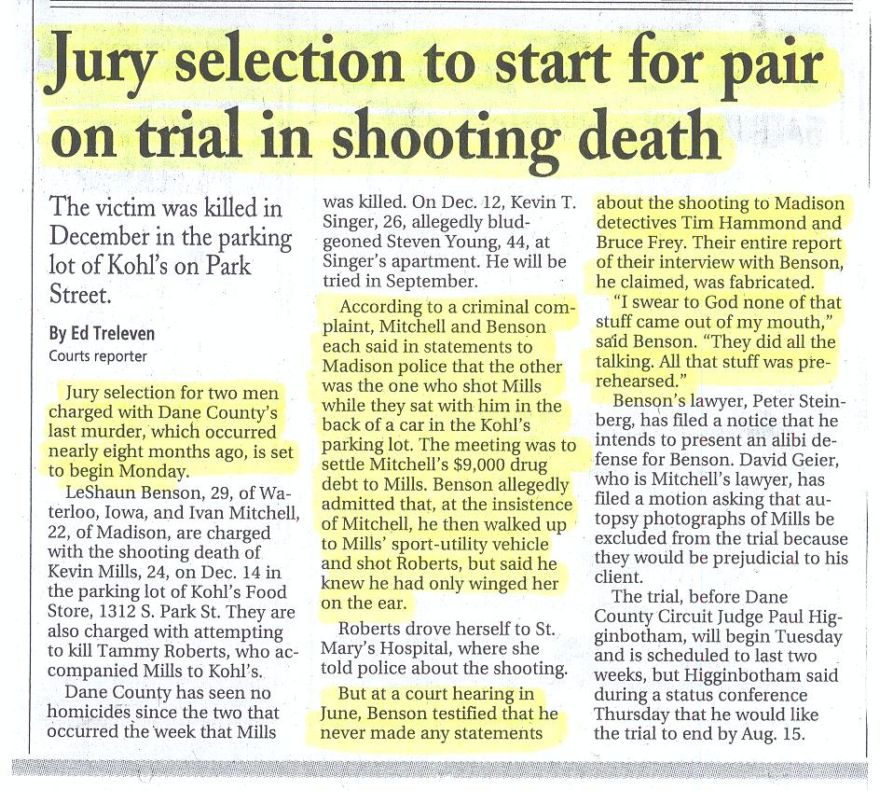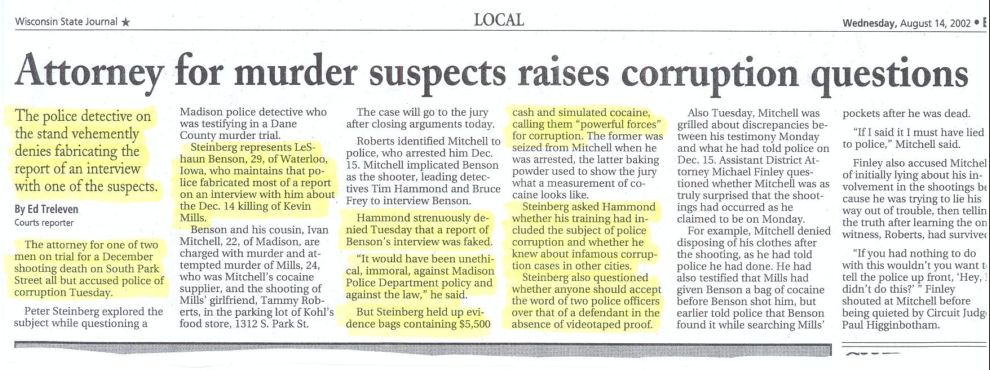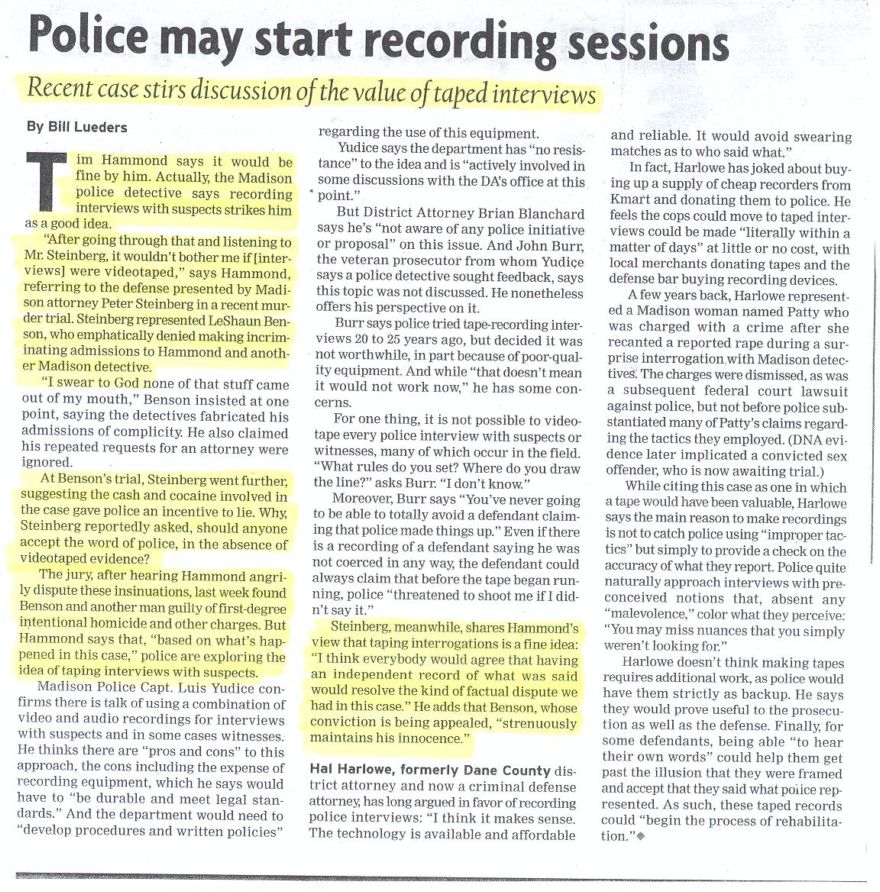"I swear to God none of that stuff came out of my mouth."
On December 14, 2001, a cocaine dealer was shot in Madison, Wisconsin. Within a few days, LeShaun Benson was arrested in Waterloo, Iowa. Madison Police Detectives Bruce Frey and Timothy Hammond traveled to Waterloo to interrogate Mr. Benson. The interview room was equipped with recording devices, and the Waterloo police offered to have the session with Mr. Benson recorded. The detectives refused this offer, but I made them regret their decision.
To this day, Mr. Benson maintains that they fabricated his statements. If Mr. Benson had not been a black man before a white jury, he might have made some headway with his protestations. As it was, the detectives won the day, but not without facing my strongest arguments that they had been up to no good:
The attorney for one of the two men on trial for a December shooting death on Park Street all but accused police of corruption Tuesday. ... Hammond strenuously denied Tuesday that a report of Benson's interview was faked. ... But Steinberg held up evidence bags containing $5,500 cash and simulated cocaine, calling them "powerful forces" for corruption. ... Steinberg asked Hammond whether his training had included the subject of police corruption and whether he knew about infamous corruption cases in other cities. Steinberg also questioned whether anyone should accept the word of two police officers over that of a defendant in the absence of videotaped proof. (Wisconsin State Journal, August 14, 2002.)
At that time, there was no policy in the State of Wisconsin requiring that the police record any in-custody questioning of a criminal suspect, but Detective Hammond became convinced that it would be a good idea:
Tim Hammond says it would be fine by him. Actually, the Madison police detective says recording interviews with suspects strikes him as a good idea. "After going through that and listening to Mr. Steinberg, it wouldn't bother me if [interviews] were videotaped," says Hammond, referring to the defense presented by Madison attorney Peter Steinberg in a recent murder trial. Hammond says that,"based on what's happened in this case," police are exploring the idea of taping interviews with suspects. (Bill Lueders, Isthmus, August 21, 2002.)
The Wisconsin legislature later required that in-custody questioning of suspects be recorded (2005 A.B. 648).


